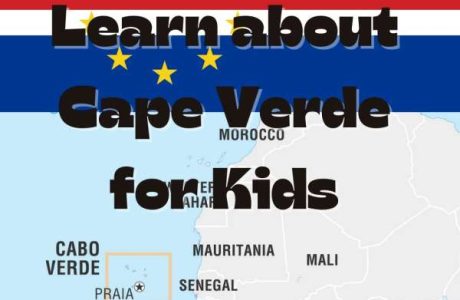 Brazil is the largest country in South America, and is officially the Federative Republic of Brazil because it is a federation of 26 states the the Federal District.
Brazil is the largest country in South America, and is officially the Federative Republic of Brazil because it is a federation of 26 states the the Federal District.
It’s the fifth-largest country by size and the seventh largest by population, so let’s get into learning about Brazil!
Brazil Basics
- Brazil is the only country in the Americans where Portuguese is the official language.
- The capital is Brasília and the largest city is São Paulo. It is bordered by Uruguay, Argentina, Paraguay, Bolivia, Peru, Colombia, Venezuela, Guyana, Suriname and French Guiana, as well as the Atlantic Ocean. It shares a border with every nation in South America except Chile and Ecuador.
- It is 3,287,956 square miles or 8,515,767 square kilometers in area and has a population around 203,000,000.
- Brazil is very ethnically diverse, with about 45 percent of people being of mixed race ancestry and 43 percent white.
- Its government is a federal presidential republic, with an elected president, chamber of deputies and a senate.
- The name Brazil probably comes from the Portuguese word for brazilwood, a tree that once grew widely along the coast (we’ll talk more about it soon).
- By the time the Portuguese arrived in what’s now modern Brazil, an estimated 7 million people lived there, mostly in semi-nomadic tribes.
- The Portuguese claimed the land of Brazil in 1500, and the country declared independence in 1822. It was recognized as independent by Portugal in 1825. It was originally an empire with a king, but a military coup in 1899 made it a republic (though it was really a military-run dictatorship) and brought about a period of instability and more coups and opression.
- Brazil includes a wide variety of ecosystems, including desert, equatorial, semi-arid, oceanic and sub-tropical, and is about 59 percent forest.
Brazil National Symbols
The Brazilian flag has a green background with a yellow diamond in the center. Inside that is a blue circle depicting stars, including the Southern Cross, and a curved white band with the national motto Ordem e Progresso (order and progress) written across it. The flag was adopted in 1889 with 21 stars; in 1992 a new version with 27 stars was adopted to represent the 27 districts in the country.
The national anthem is known as Hino Nacional Brasileiro or the National Anthem of Brazil. The music was composed in 1831 and it had a couple of different sets of lyrics until the official lyrics were approved in 1922.
The country also has a song dedicated to the flag.
The brazilwood tree is the national tree of Brazil, more formally known as Paubrasilia echinata. The tree was used to produce a red dye and has a dense, orange-red wood that takes a high shine. Learn more about brazilwood and how it named a nation in this video from Funky Geckos.
The national bird is the rufous-bellied thrush, a small bird with a reddish-orange belly that is quite common in southeastern Brazil.
While there has been no official designation, the flowers of the golden trumpet tree are considered by some to be the national flower of Brazil.
Brazil Activities for Kids
One of the most famous landmarks in Brazil is the Christ the Redeemer statue in Rio de Janero. Learn all about it in this lesson from Google Arts and Culture, and learn more fun facts about it from Mom Junction. Super Coloring has a few coloring pages of the landmark.
Learning Tail has a good video about Brazil for kids, and you can purchase flash cards, a learning guide, coloring pages and more from them to extend the lesson. You can also find good country studies, information about Brazil’s music, celebrations, Brazilian history and more from Teachers Pay Teachers.
Talk about or play soccer as part of your unit study about Brazil. Brazil has won the World Cup five times, more than any other country. They hosted the men’s World Cup in 2014 and will host the women’s competition in 2027.
Learn more about Iguazu Falls, a collection of waterfalls and national parks on the border of Brazil and Argentina.
Watch a Capoeira circle, an Afro-Brazilian dance form that combines martial arts and dance. It was recognized by UNESCO as a representative of the intangible culture of humanity. Or learn how to dance the samba, a famous Brazilian dance.
Grilled meats are a classic food from Brazil, but you might also try fejaoada, considered a national dish. This Brazilian stew is made with black beans and pork or beef, and you can get a recipe from Olivia’s Cuisine.
Looking for a book about Brazil? Check out the Little Globetrotters book on Brazil, or, if you want to try your hand at reading Portuguese, get the bilingual book Beautiful Brazil/Brasil Lindo.





Leave a Reply